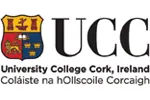We're moving! This site will be relocating to goingto.university in 2026. Please update your bookmarks to the new address.


Ireland
University College Cork (UCC)| The award | How you will study | Study duration | Course start | Domestic course fees | International course fees |
|---|---|---|---|---|---|
| MA | Full-time, Part-time | 1 - 2 year | September | - | - |
Overview
The MA in Contemporary Religions offers an innovative and distinctive programme unique in Ireland. The Study of Religions Department at UCC follows a non-confessional, academic approach to the study of religions, welcoming students interested in questions of cultural diversity, politics, gender and religions in the contemporary world. Teaching staff are leading experts in Indian religions and cultures, contemporary Islam, indigenous and minority religions, neo-paganisms and new religious movements, gender and religions, and anthropology of religion. As part of the course you'll conduct original fieldwork-based research in Ireland. The Dissertation in Contemporary Religions gives you the opportunity to research an area of your own choice in the wide field of contemporary religions.
Course Details
The MA in Contemporary Religions is suitable whether you've already studied religions to primary degree level or have a BA/BSc in another area and are simply interested in studying religions. The course can be taken as research preparation, for MPhil or PhD, or simply to further your knowledge and understanding of contemporary religions.
You'll take four taught modules over terms one and two and complete the Dissertation in Contemporary Religions over the summer (EU students can also take the course part-time over two or three years).
Modules (15 credits each):
RG6010: Contemporary Approaches in the Study of Religions
This course deals with three main bodies of critical theory (poststructuralist, postcolonial and gender theory), plotting the intersections and points of departure between them and tracing the implications that their insights offer to the academic study of religions.
RG6020: Contemporary Islam
You'll study various trends and issues in modern and contemporary Islam through movements and individuals, from pre-modernist reform movements such as the Wahhabiyya and the recent Islamic 'resurgence' up to contemporary forms of globalised Islam.
RG6050 Deities, Devotion and Disciplines in Indian Religions
This module analyses modern and contemporary religious traditions of India, such as Neo-Hinduism, Popular Hinduism, ascetic and reformist traditions.
RG6060 Indigenous Worldviews and Minority Religions
This module examines the contemporary dynamics of the relationship between globalization, neo-liberalism and indigenous and minority populations. We approach this complex relationship through the lens of indigenous worldviews, knowledge systems and religious revival movements.
RG6080 Religions in Contemporary Ireland
The course examines the contemporary religious landscape in Ireland, covering diverse religious groups, communities and traditions and spans a range of topics, including current issues and debates within the wider social, cultural and political context of Ireland.
Further Details of the programme contentare in the: Postgraduate College Calendar
Fuller details for each module can be found in the Book of Modules(note for technical reasons the listing is under RG - 'Religions and Global Diversity')
Fact File
Course Code: CKE06 Full-time, CKE07 Part-time
Course Title: Religion - Contemporary Religions
College: Arts, Celtic Studies and Social Sciences
Duration: 1 Year Full-time; 2 years Part-time; 3 years Part-time
Teaching Mode: Full-time, Part-Time
The part-time option will be taught during evening hours.
Qualifications: MA
NFQ Level: Level 9
Costs: 2017/2018 Irish/EU Fee: EUR 6,000 full-time; EUR 3,000 per year part-time
2016 Entry Requirements: Minimum 2.1 honours degree. Applications from candidates with other qualifications will be considered on a case-by-case basis and subject to approval by the College of Arts, Celtic Studies and Social Sciences, UCC
Closing Date: See details in application procedure section below
Next Intake: 11 September 2017
Course Practicalities
All modules on the programme are taught in the evening (6-9pm).
Assessment
All assessment is by coursework, including essays, presentations, fieldwork reports and journals, and the Dissertation.
Application Procedure
Application for this programme is on-line at www.pac.ie/ucc. Places on this programme are offered in rounds. The closing dates for each round can be found here. For full details of the application procedure click How to Apply.
All required documentation must be either uploaded to your online application, or sent in hard copy to The Postgraduate Applications Centre, 1, Courthouse Square, Galway, immediately after an application is made.
Please note you will be required to answer specific additional/supplementary questions as part of the online applications process for this programme. A copy of these additional/supplementary questions are available to view here:CKE06AdditionalQuestions (12kB)
Early applications are enouraged for early decisions.Further Contact Information
http://www.ucc.ie/en/religion/people/
2016 Entry Requirements: Minimum 2.1 honours degree. Applications from candidates with other qualifications will be considered on a case-by-case basis and subject to approval by the College of Arts, Celtic Studies and Social Sciences, UCC
Closing Date: See details in application procedure section below
Next Intake: 11 September 2017
Contact University College Cork (UCC) to find course entry requirements.
Below are some suggested courses at other providers that you may also be interested in:
Applied Computer Science Professional Bachelor Degree
KdG University of Applied Sciences and Arts
Find out moreMSc International Business 4.0 - Corporate Finance & Fintech MSc
ESSCA School of Management – Online Programs
Find out moreGraduate Visiting Student Program Short Course
Columbia University, School of Professional Studies
Find out moreIf you do not meet the entry requirements for this course then consider one of these postgraduate preparation courses from another institution:
Graduate Diploma of Professional Accounting (FedUniv at IIBIT)
International Institute of Business & Information Technology (IIBIT)
Find out moreThere are 338 other courses listed from University College Cork (UCC). A selection of these are displayed below:
Join the StudyLink email list and never miss a chance to turn your study abroad dreams into reality!
